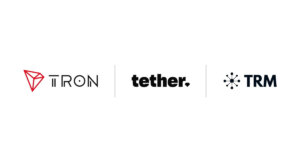UK Crypto Scene Remains a ‘Wild West’ Amid Regulatory Uncertainty
Photo by Krists Luhaers on Unsplash
It’s the word on the crypto community’s collective mind: Regulation. And for the U.K.’s Right Honorable Nicky Morgan MP, Chair of the Treasury Committee, cryptocurrency is a wild “wild west.”
Volatility in the field isn’t new information, and neither is necessary adaptation. Protocol in regulation scenarios such as this has required a great deal of controversy before achieving a level result. For example, Rt. Hon Morgan has been eyeing the cryptocurrency space since Feb. 19, when she wrote to the Financial Conduct Authority inquiring about the events that led to the demise of Co-op Bank, which occurred in late 2013.
Her position regarding cryptocurrency in the U.K., however, remains that regulation is not sustainable, nor is the U.K. government transparent in its plans to utilize cryptocurrency.
The Chair’s comments stated that the government is “bumbling” along the issue by issuing inert warnings to investors without following up on potentially unlawful transactions. In her statement, Morgan said:
“Bitcoin and other crypto-assets exist in the Wild West industry of crypto-assets. This unregulated industry leaves investors facing numerous risks. Given the high price volatility, the hacking vulnerability of exchanges, and the potential role in money laundering, the Treasury Committee strongly believes that regulation should be introduced.”
She added that at the very least, regulation could bring illicit-activity awareness and anti-money laundering information to consumers.
“If the government decides that crypto-asset growth should be encouraged, appropriate and proportionate regulation could see the U.K. become a global centre for this activity.”
As it stands, there are currently no anti-money laundering rules under the country’s Bank Security Act. However, the Committee does acknowledge the EU’s fifth AML Directive as a progressive indication that blockchain use could adapt to U.K. laws.
A globally accepted concern regarding blockchain transactions is processing time, but efficiency initiatives are well underway to becoming a primary feature within cryptocurrency.

Ripple, for example, has already executed plans for its lightning-fast platform, xRapid, a game-changing product offering financial institutions lower liquidity costs. It was recently reported that U.K. banks have accepted a partnership with Ripple, making the company one of the most vastly utilized resources for digital transactions.
As the U.K. continues to adapt its transaction policies, the certainty of regulation becomes a reality more than a concept.
Commenting on the news, Peter Edgar, CEO of U.K.-based blockchain investment platform, Investx, said:
“Regulation is the biggest question mark in the blockchain industry right now, and the sooner sensible regulation is brought in the better. Regulation will remove the bad actors in the industry and ensure investors are protected.”
He continued:
“We see the opportunities that blockchain technology can bring to financial services, in that it can open up new routes of funding for established businesses. In a time of uncertainty in the U.K., we would welcome clarity from British regulators to make U.K. the global leader in blockchain technology.”



 CryptoQuant
CryptoQuant 






















































































